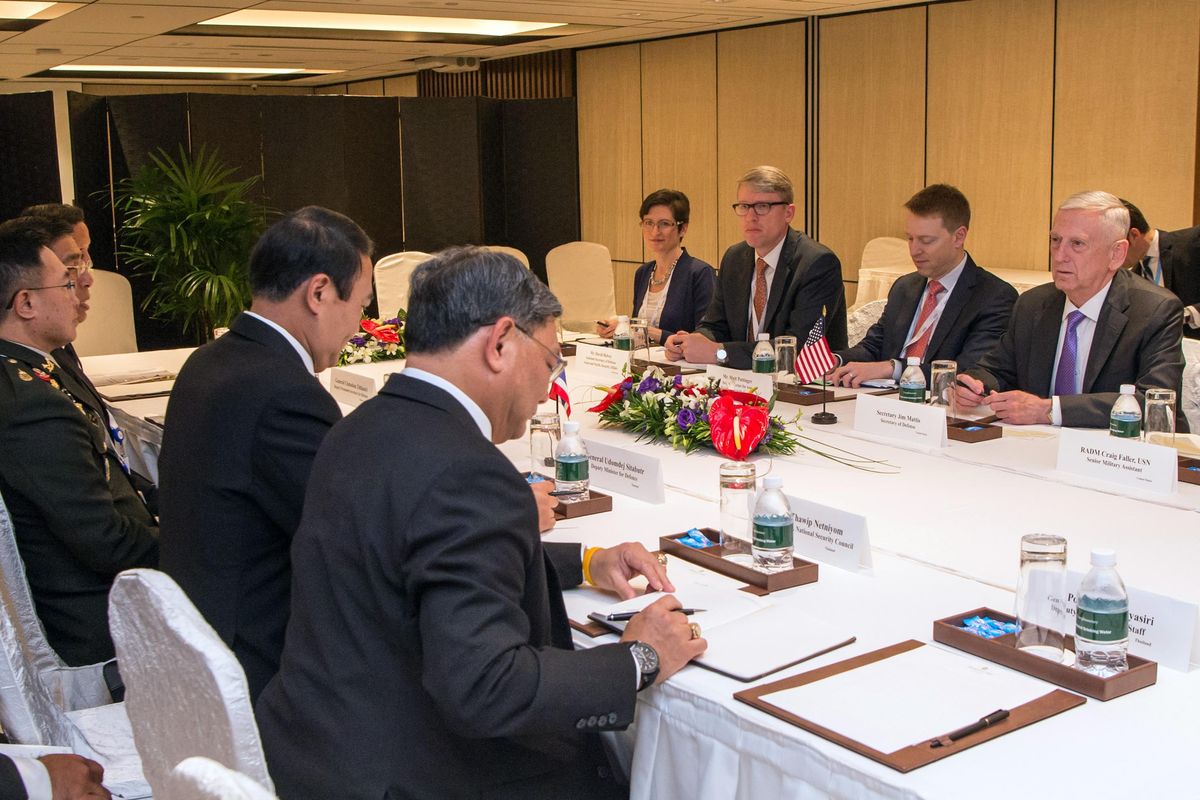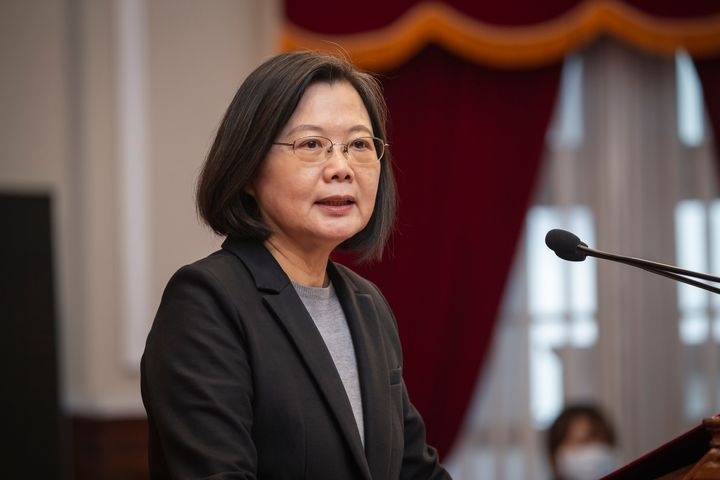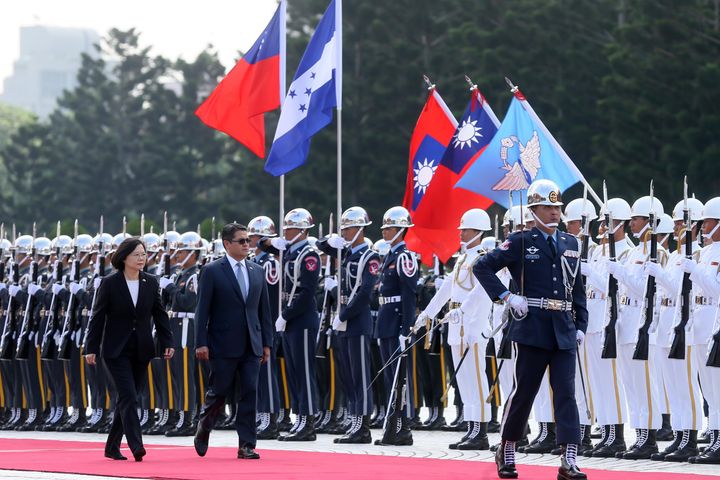Former Deputy NatSec Adviser: China Sees Ukraine War as Favorable to Its Own Ambitions

Beijing sees the conflict in Ukraine and the burdens the war has placed on the West as favorable to its own long-term economic and political power strategy—including its machinations for Taiwan—but that does not mean the White House should not continue the pursuit of diplomacy with Chinese president Xi Jinping, Matthew Pottinger, former deputy national security adviser, said Monday.
Pottinger, now a visiting senior fellow at the Hoover Institution in California, said Xi’s China could cause grave damage to the world in pursuit of “comprehensive national power, to use a phrase that (Chinese Communist Party officials) are fond of using,” simply because the Chinese dictator, now in his 10th year in power, believes in his own grand vision.
“I think that Xi Jinping’s original hope was probably very aligned” with Russian President Vladimir Putin’s plan for a quick victory over Ukraine, Pottinger told The Washington Post’s David Ignatius in an online interview.
“Failing that, I think that Beijing may believe that it has an interest in prolonging the war as long as possible to drain Western attention, NATO attention, to drain treasure and stockpiles of weapons as long as possible to create a more favorable strategic situation in the Western Pacific, including around Taiwan,” he said.
Xi could be overestimating his own abilities, Pottinger acknowledged when asked by Ignatius, but of higher relevance is Xi’s confidence—or overconfidence if that is the case—because it will drive his decisions, including carrying out aggressions on Taiwan, even if they are unlikely to succeed. “Xi wants to move towards an active annexation of Taiwan,” Pottinger said.
“Look, I think there’s quite a lot of damage that could be done if Xi Jinping attempts to achieve those very grandiose aims that he’s spoken about quietly for the last 10 years,” Pottinger said.
“The question is, what does he believe? I don’t believe Vladimir Putin is going to conquer Ukraine, but the operative question as we found out a year ago was, what does Vladimir Putin believe? He thought he could, and this is an affliction that affects dictators all the time, especially when they’ve been in power a long time, the way that Vladimir Putin and Xi Jinping have been in power. They start to believe their own sense of destiny. They start to believe that their ambitions are achievable, and that the United States is crumbling, and that the West is unraveling irrevocably.”
Pottinger, a former official in the Donald Trump White House, commended President Joe Biden for confronting China a year ago about evidence that it was supplying military equipment to Russia to use in its war against Ukraine. Biden’s national security adviser Jake Sullivan met in Rome with a senior Chinese foreign policy adviser, Yang Jiechi, over the United States’ concerns. The Kremlin had denied reports that it asked Beijing for arms to use in the war.
“Sullivan was seeking clarity on Beijing’s posture and was warning the Chinese anew that assistance for Russia—including helping it avert sanctions imposed by the U.S. and Western allies—would be costly for them,” Pottinger said.
A linchpin of the West’s sanctions against Russia for invading Ukraine was the barring of some Russian banks from SWIFT, the dollar-dominated global financial messaging system. The move was intended to cut Russia off from the access to financing, a move that Western European and American proponents of the measure thought would cripple the Russian financial system.
But the results have been mixed. Russia has revved up efforts to ditch the U.S. dollar in favor of the Chinese Yuan, the Wall Street Journal reported. It was an effort Russia began in earnest in 2014, after its invasion and subsequent annexation of Crimea, which led to western financial sanctions, looking to conduct more business using rubles and other currencies, including the yuan, or renminbi as it is also called.
Pottinger said there is evidence that “Xi Jinping is now conniving to start providing arms and ammunition to Russia to prosecute the largest war in Europe since 1945.

“That is a very big deal. This could be the tipping point where we see an accelerated decoupling between the West and China, and again, China and just like Vladimir Putin, they are the protagonists of this story. They’re the ones who are driving events, and we are sort of in surprise reacting belatedly to the things that they’re doing. So I actually commend (U.S. Secretary of State Anthony) Blinken for calling out Beijing’s plans publicly,” he said.
Pottinger said the White House will have to follow through on the red line Biden painted a year ago with China, when he warned that the U.S. would respond if China attempted to invade Taiwan. “That will require system sanctions if it comes to it,” Pottinger said.
Pottinger said Chinese premier from 1998 to 2003, Zhu Rongji, “used to say, you know, ‘our relations with the United States are never going to be great, but they also don’t need to be horrendous.’ That’s not a bad place to aim for, but as we do it, we should not be overly wishful in our thinking that Beijing is going to reciprocate, because so far, the indicators are that Beijing is not willing to reciprocate.”



